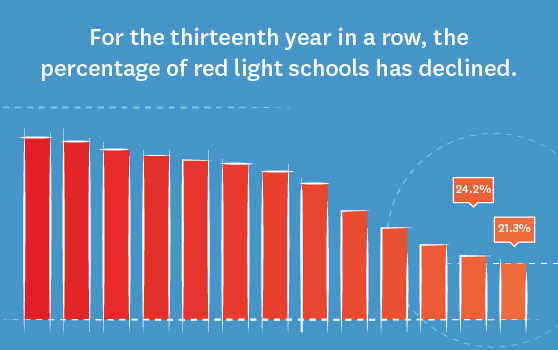CU Denver revises email policy, commits to upholding free speech
Each month, FIRE highlights one restrictive policy at a college or university as our “Speech Code of the Month.” Because it’s far from an award to be proud of, FIRE encourages institutions with these policies to amend them quickly. However, our words often go unheeded, exposing the university or college to costly legal battles and chilling student expression.
But not all institutions are content with leaving bad policies on their books. This month, FIRE’s December Speech Code of the Month recipient, the University of Colorado Denver, lived up to its obligation under the First Amendment by quickly revising an email policy that restricted student and faculty speech.
FIRE first called attention to CU Denver’s email policy earlier this month, noting that the policy directed students not to send any “offensive … or otherwise inappropriate matter” over email. Listed examples included “offensive comments” about topics like race, gender, political beliefs, and even terrorism.
This week, CU Denver reformed the policy in line with FIRE’s recommendations, striking parts of it from the books. For comparison’s sake, CU Denver’s old policy stated:
Do NOT use email:
- To create, send, forward or store emails with messages or attachments that might be illegal or considered offensive by an ordinary member of the public. (e.g., sexually explicit, racist, defamatory, abusive, obscene, derogatory, discriminatory, threatening, harassing or otherwise offensive).
…- To send any disruptive, offensive, unethical, illegal or otherwise inappropriate matter, including offensive comments about race, gender, color, disability, age, sexual orientation, pornography, terrorism, religious beliefs and practice, political beliefs or national origin, hyperlinks or other references to indecent or patently offensive websites and similar materials, jokes, chain letters and hoaxes, charity requests, viruses or malicious software.
The unconstitutional language taken out, the policy now reads:
Do NOT use email:
- To create, send, forward or store emails with messages or attachments that are illegal or violate any other campus or University policy.
CU Denver, a recent addition to FIRE’s Spotlight Database just this year, released a statement about the change:
Free speech is a vital part of CU Denver’s mission. We strongly support and encourage students, faculty and staff to express their views, debate issues, get involved and make change. The policy was primarily geared toward faculty and staff use. We plan to update this policy and review the policy language created by our partner CU campuses.
Because of this revision, CU Denver no longer holds FIRE’s worst, “red light” rating for free speech, now achieving a “yellow light” rating. We look forward to the possibility of working with the university to earn the highest, “green light” rating, as we did with CU Boulder earlier this year. For more information about campus speech codes and to see where your college or university stands, you can read FIRE’s 2021 Spotlight on Speech Codes Report.
FIRE congratulates CU Denver on making a swift change to this policy. As always, we stand ready to assist universities in crafting policies that protect student rights. If you’re concerned about a potential violation of your rights on campus or are an administrator interested in revising a policy, contact FIRE for more information.
Published at Thu, 17 Dec 2020 21:22:13 +0000
